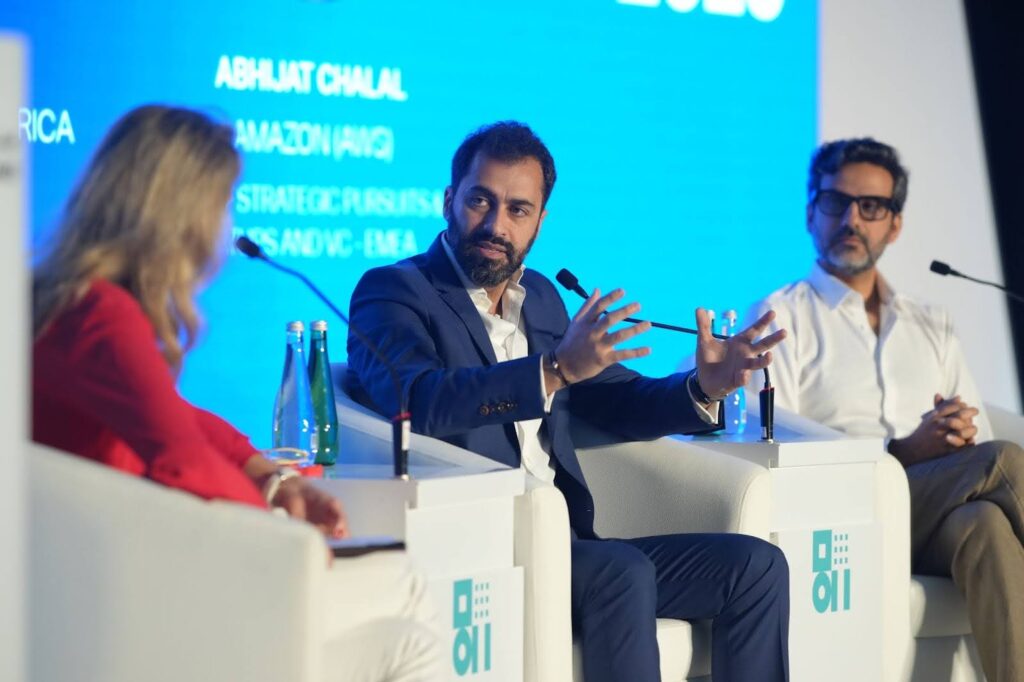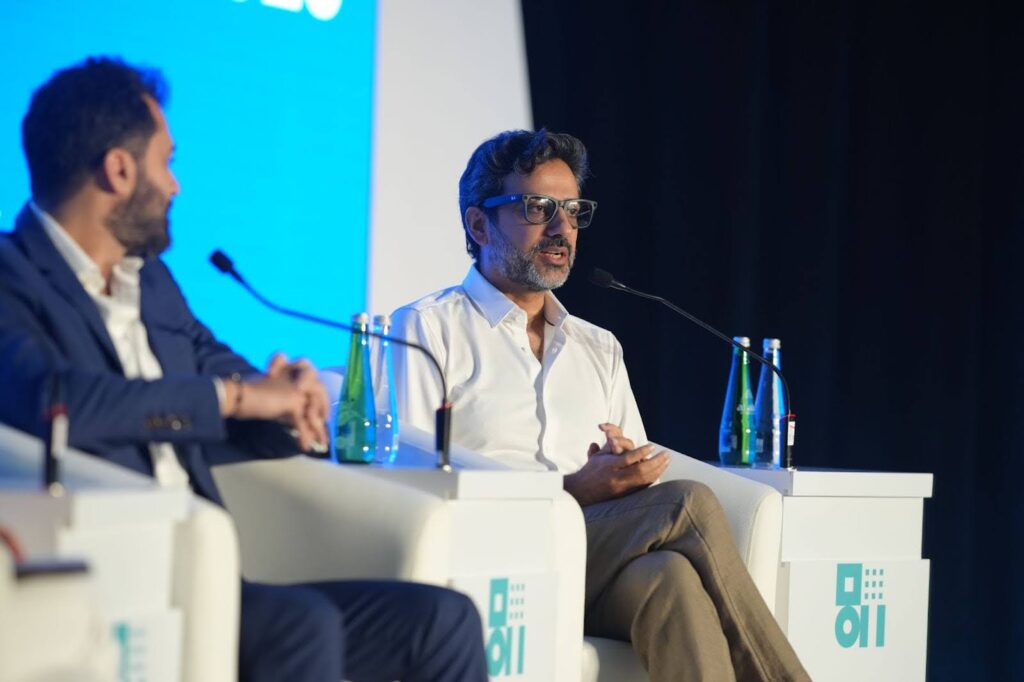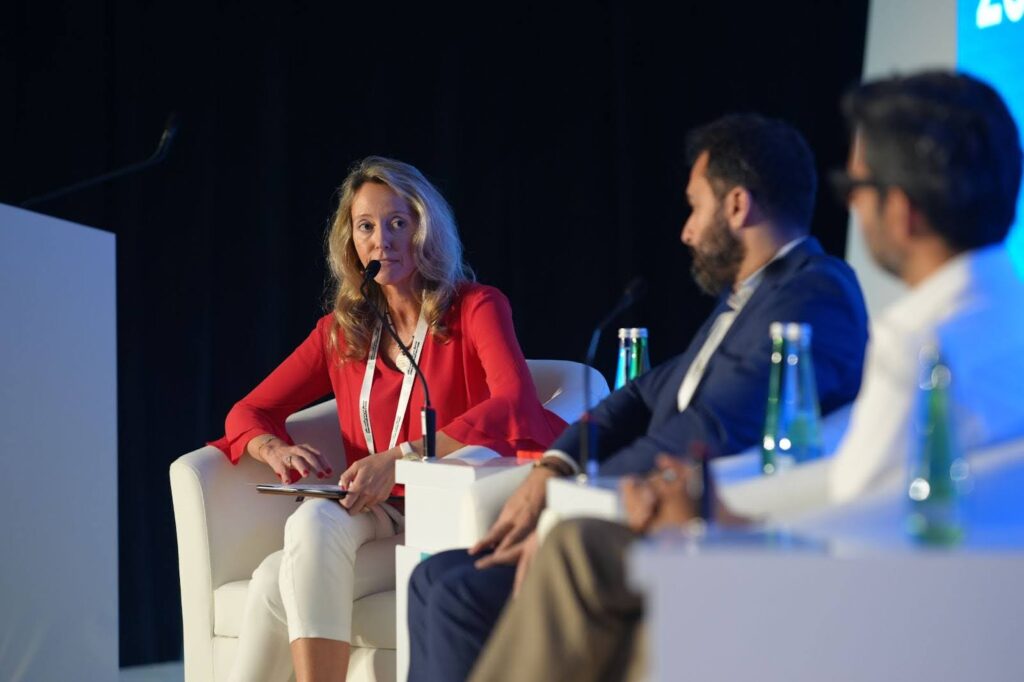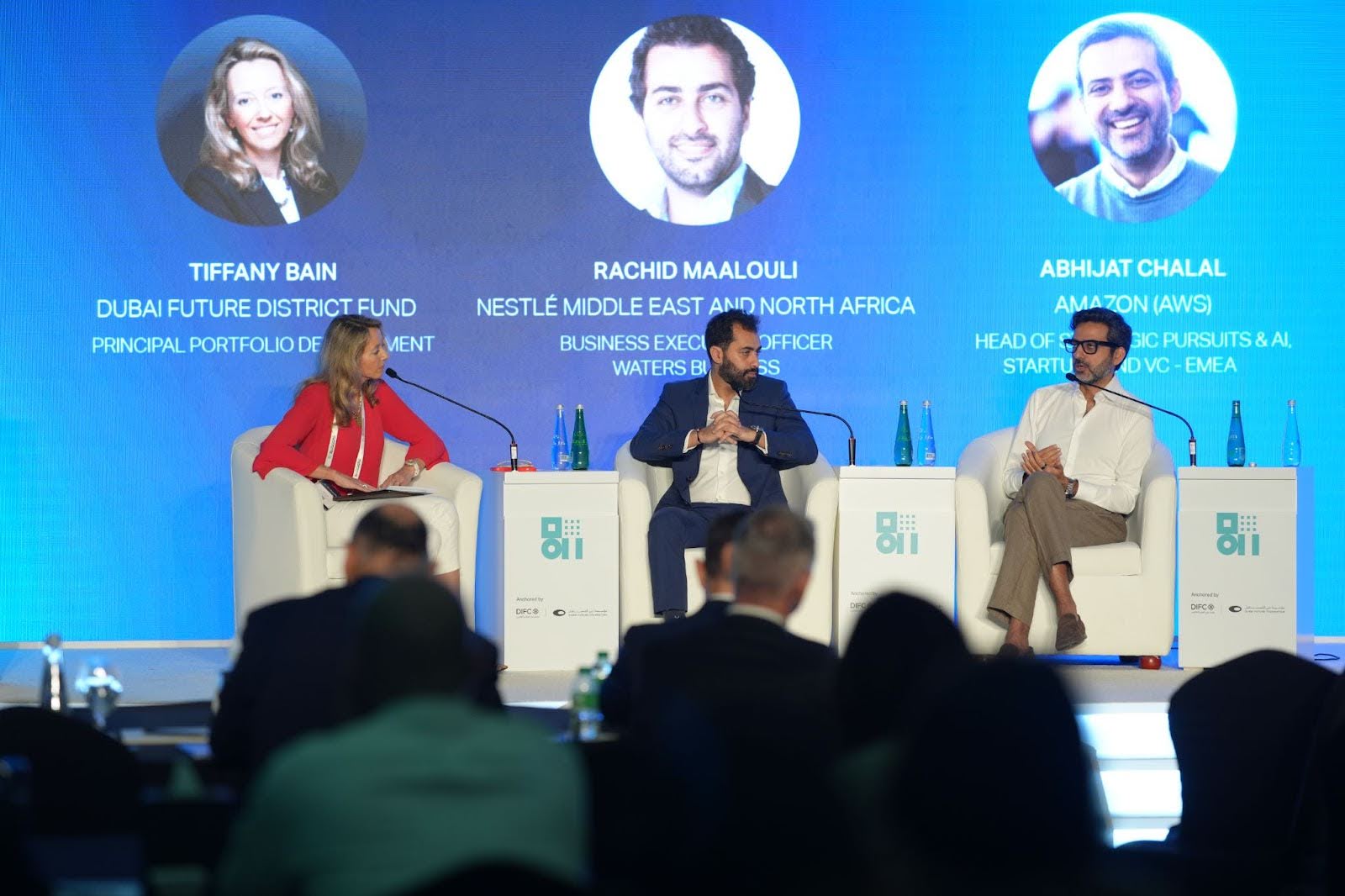At our 2025 AGM, one of the most energizing discussions came from a panel that cut across one of DFDF’s core beliefs: that venture capital, corporates, and founders must work together if we are to unlock real, scalable innovation.
Moderated by DFDF’s Principal, Tiffany Bain, the session brought together two leaders shaping how global enterprises engage with startups:
- Rachid Maalouli, Head of Innovation at Nestlé MENA
- Abhujat Chalal, Head of Startups and VC, AWS EMEA
Here’s what we took away from the session.

Nestlé: Redefining Corporate Innovation in MENA
Nestlé is one of the world’s largest F&B companies, but its approach to innovation in MENA is anything but top-down. Rachid opened with a clear mandate: Nestlé MENA is on a mission to double its business while ensuring sustainable consumption and meaningful community impact. That mission demands new ways of thinking — and new types of partners.
Nestlé is actively seeking startups that bring not only product solutions but also fresh thinking. Exposure to external innovation, even when it doesn’t result in a transaction, is seen as success in itself. Rachid expressed that for a company of Nestlé’s size, being externally centric is a meaningful cultural shift.
With DFDF, Nestlé is co-developing a curated engagement program. In the near term, that includes targeted pitch days with C-suite stakeholders across the business, matchmaking ventures with the relevant key decision-makers in the Nestle business. But the real goal is longer-term: to embed startup collaboration into the very fabric of how the company innovates.
What does success look like in six months? A handful of startups evolving into true thought partners — solving real business challenges, and shaping Nestlé’s innovation roadmap for the next three to five years.

AWS: Scaling Startups with More Than Credits
As Head of Startups and VC at AWS EMEA, Abhijat Chalal brought a global lens to the panel.
The VC landscape, he noted, is splitting into three tribes: early-stage purists, post-COVID pragmatists, and global players building hybrid VC/PE models. In this evolving context, AWS is doubling down on collaboration. Not just by providing infrastructure, but by helping startups access real customers.
AWS’s approach is simple: start early, align deeply, and scale globally. The best outcomes happen when founders, VCs, and AWS work together before an investment is even made. That can look like:
- Benchmarking growth (and identifying trends) using anonymized AWS data.
- Co-developing go-to-market strategies that leverage AWS’s global customer base.
Placing startup solutions in front of corporate buyers who already trust AWS.
From Pitch to Partnership: How Startups Can Win
For founders pitching corporates like Nestlé, Rachid had three words: clarity, motion, and flexibility.
Clarity in articulating the problem you solve — not just flashy tech. Motion in showing that your solution is already gaining traction. And flexibility to pivot based on what the corporate actually needs — not just what you’ve built.
Rachid was clear: Nestlé doesn’t expect founders to show up with all the answers. What they do expect is active listening, a willingness to co-create, and the humility to treat the pitch as a partnership — not a sale.
For founders, that means moving away from polished, static decks and toward dynamic problem-solving conversations. “Don’t try to impress. Try to engage,” he said.

What Makes a Great VC Partner?
According to Abhijat, the majority of VCs still struggle to drive meaningful value beyond capital. He believes that the best ones should take the following approach:
- Build networks that give startups real customer access.
- Hire operators and business development professionals to open doors.
- Partner with players like AWS early — even before term sheets are signed.
The goal isn’t to sell on behalf of founders, but to equip them with what they need to sell themselves — with insight, context, and credibility.
Global from MENA: The Nestlé and AWS Opportunity
The panel ended on an important note: startups in MENA must think global from day one.
Nestlé MENA is already a key market for innovation within the global group — and solutions born here can (and should) scale across its global footprint. But to do that, Rachid emphasized, founders must go beyond importing proven models. Instead, they should build on the region’s intrinsic strengths — from foodtech rooted in local agriculture to AI applications born from real, unmet needs.
AWS echoed the sentiment: global customers reward early engagement and validated solutions, not slide decks. For MENA startups, that means skipping the friction of slow local procurement cycles and finding early customers abroad — then selling back into the region with global credibility.
The Role of DFDF: Creating Corridors, Not Just Connections
As DFDF, our role is to bridge the gap — not only between capital and startups, but also between corporates and venture, between local ideas and global markets.
From curated pitch days to bespoke engagement programs, we’re co-creating playbooks with players like Nestlé and AWS to help startups scale with purpose and partners.
We’re also investing in the infrastructure to help regional startups break out globally; because the truth is, when the right ideas meet the right capital, networks, and customers — innovation accelerates.
The Takeaway: Think Partnership, Not Procurement
The most powerful message from this panel? Innovation isn’t bought. It’s built — together.
Whether you’re a founder, a VC, or a corporate decision-maker, the path to transformative outcomes lies in deep collaboration. Not one-off transactions. Not vanity metrics. But shared motion toward a common goal.
At DFDF, we’re proud to be building the mechanisms that make these partnerships real — and to be shaping the future of finance and future economies, one ecosystem at a time.

